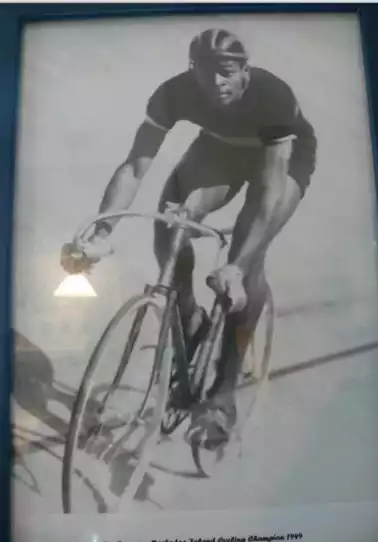Olympian and three-time New York State cycling champion Ken Farnham, who rose to folk hero status in that race in the 1950s, died of complications from COVID-19 on April 4, according to family friend Andrea Lockett. She died in New York City at the age of 89.
Born on the Caribbean island of Barbados, Farnham began racing there at age 10. He grew up racing packs on a circuit laid out on the grass of a flat cricket field. Farnham grew to be just over 6 feet tall and weighing 180 kilograms. He won in Barbados and all over the Caribbean, including Jamaica and Trinidad. He won eight sprint titles in the West Indies.
In 1952 he was part of the Jamaican track cycling team that competed in the Helsinki Olympics. He competed in the match sprint and the 1000 m standing start individual time trial. Although he did not medal, he became the first Barbadian Olympian to return home.
In Barbados, he worked in telecommunications for what is now Cable & Wireless. After the Olympics, he moved to New York City. He continued to work in telecommunications during the day and continued to train and compete in his own time.
"I remember watching him race on the old half-mile track at Flushing Meadows," recalls Jack Symes III, a three-time Olympic sprinter and U.S. Cycling Hall of Fame inductee. The cement oval track in Queens, New York, is now the parking lot of Citi Field, home of the New York Mets.
"He was fit. I remember competing against Walter Grotz, the New Jersey state champion. Farnham was also on the criterium.
A brown-skinned cyclist in a sport dominated by white athletes, Farnham won the 1955 New York State Championship of the American Amateur Cycling Union (precursor to USA Cycling). It was the first time a cyclist of color had won a national race since Major Taylor, an African American and national and world professional cycling champion at the turn of the century. 1956 and 1957, Farnham defended his title.
"He was definitely a folk hero," says two-time Olympic cyclist and U.S. Cycling Hall of Fame inductee Butch Martin.
"If you think about sports in the 1950s, kicking a white man's butt was a big deal. Farnham could do it. He had a huge following."Farnham influenced a young African American, Harvey Francis of New York. Francis competed as a sprinter at the 1960 Rome Olympics and influenced Butch Martin, who rode Francis' Schwinn Paramount track bike in the team pursuit at the 1964 Tokyo Olympics.
"Harvey said he once saw Farnham at a track race where everyone was clustered close together and Farnham's front wheel was overlapping the rear wheel of the rider in front. 'They went into a banked 35-degree turn. Farnum had phenomenal handling skills and kept the car up throughout the turn. Any other racer would have almost tipped over."
Barbados was granted national independence in 1966 and subsequently sent its own Olympic team. The Barbados Olympic Museum in Bridgetown recognized Farnham as the country's first Olympian; in March 2012, he visited the museum to talk about his experience at the 1952 Helsinki Olympics.
Barbados is survived by his wife Judith, son Ken Jr. and daughter Judy, two sisters Colleen and Ann, and nieces and nephews.


Comments